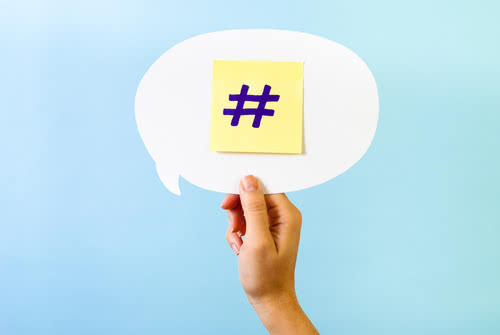By the time your conference rolls around, we imagine you’ll be a bit low on sleep and high on caffeine. Hopefully, thanks to your speakers, partners and solid marketing and social media efforts, the big event will be completely sold out.
But with so many offline things to think about during the conference itself…
Have all of the speakers arrived? Is there enough coffee for attendees? Are there enough power outlets? Is the wifi holding up? Is the air con on? Is the air con on too high?
…it can be easy to neglect the online portion. Here are our suggestions for successfully managing the conversation that happens online during your conference.
Find a Designated Tweeter
Unless you are Superman or Wonder Woman, you should consider enlisting the help of a social media savvy friend, co-worker or volunteer to help you manage your twitter account the day of the event. You’ll be running around like a chicken with your head cut off trying to ensure all of the offline activities associated with your conference are going off without a hitch — and it will only make your life easier if you don’t have to think about what’s happening online. Trust us.
Meet with them several days or weeks ahead of time to make sure they’re properly briefed on the following:
- Twitter basics: Everyone could likely use a crash course or refresher in the rules of the road, right? We adore Jessica Hische’s website, Mom, This is How Twitter Works for this exact purpose
- Voice and tone: Is your conference really fun and quirky? More professional and formal? Review what your conference ‘voice’ is, and how to respond to praise, complaints, questions, etc.
- What is ok to RT? Is it ok to RT great quotes that people tweet during the event? Or just ‘Favorite’ them? Be clear on what is ok, and not ok to RT!
- Channeling feedback: When issues come up, be they positive or negative, what is the best way channel online feedback to you, the organiser, on the day of the event? (Hey! It’s too cold in here!, etc.)
Schedule Content in Advance
If your conference is on a set schedule, it’s not a bad idea to schedule tweets in advance to maintain sanity. Consider scheduling reminders about breaks, breakout sessions, where the bathrooms are, where to eat lunch, etc.
Additionally, during your conference is a great time to share content exclusive to your event itself. Examples of this are interviews with your speakers, links to online versions of speaker decks or SlideShare presentations, or behind the scenes material that the normal attendee wouldn’t have access to (Pictures from the green room, pictures of lunch, etc.).
Monitor the Hashtag
As we mentioned in our Favorite Tools post, we love using HootSuite and RowFeeder to monitor the hashtag for your conference in real-time (HootSuite), and then afterwards (RowFeeder) to analyse the data. Quite often conference attendees will not mention your actual Twitter handle if they are live tweeting, because it takes up too much valuable character real estate — instead, they’ll stick to the hashtag alone, so it’s vital that you’re keeping an eye on that.
Seek Feedback
Responding to feedback is great (Help! There’s no toilet paper in the men’s room), but seeking feedback is better! Keep an eye on the pulse of the event by selecting a few times to seek strategic feedback and use it to make the rest of your event, or your next event, even better.
There are tons of great survey tools available, like our partner SurveyMonkey, that allow you to share surveys via a simple link, which is perfect to share via a Tweet or email!
Showing your attendees that you are not only responding to their feedback but seeking it out proactively will only increase their loyalty towards your conference, giving them instant satisfaction in knowing that their ideas and suggestions are being received and considered.
Offer Thanks & Recap
The end of the day can often be a rush, especially if your event is one day only or it’s the final day and you must tear down/pack up everything at your venue. Just because the conference might be over, doesn’t mean the conversation should be. If needed, schedule tweets in the hours and days after your conference wraps-up, thanking your attendees for coming, your speakers, and sponsors.
Also, be sure to share any recaps or photo albums from your event — if your attendees found value in your conference, it’s likely they’ll keep engaging with your post-event communications!
Are you a pro at handling social media on site at conferences? Born to live-tweet? We’d love to hear from you (and your best practices) in the comments below!





